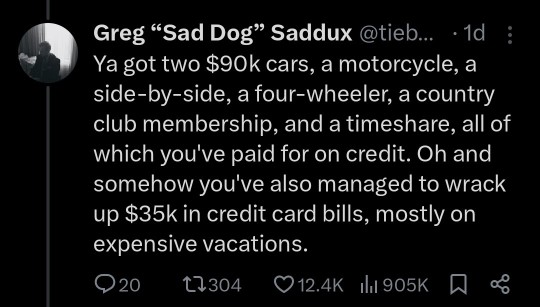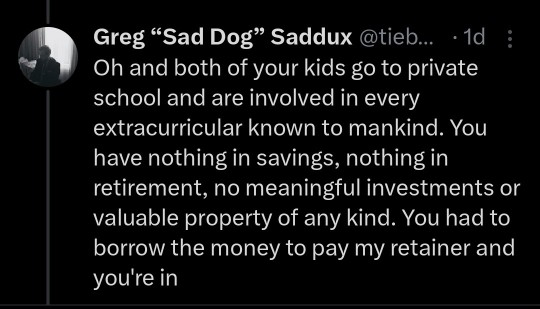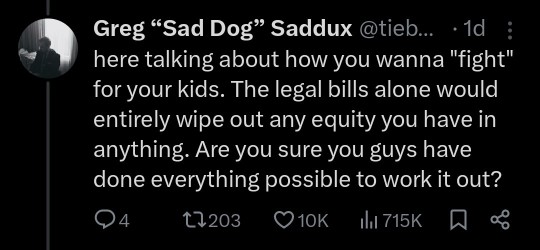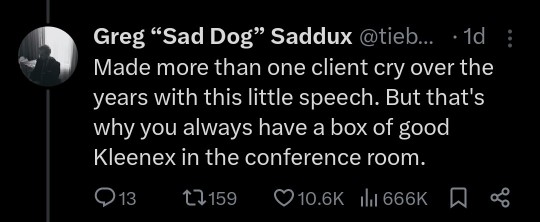#legal
Text
Upcoming US Senate Vote on KOSA
KOSA “amounts to a blank check for censorship”. Concerned individuals can urge US senators to vote “no” ahead of this week’s US Senate vote on advancing KOSA: https://bit.ly/3YhRqS2. Read Fight for the Future’s full statement at: https://bit.ly/4di9T5n
You can also review OTW Legal’s concerns about KOSA at: https://otw-news.org/2p88fj2w

734 notes
·
View notes
Text
The sad story of what happened to a married team of creators who lost millions - and their names - to a corporate takeover.
Hold on to those trademarks, kids.

2K notes
·
View notes
Text
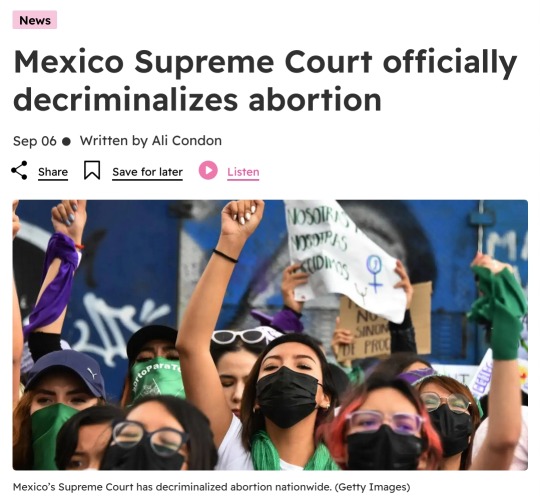
The Mexican Supreme Court has officially ruled to decriminalize abortion across the nation.
The Supreme Court declared that “the legal system that criminalized abortion in the Federal Penal Code is unconstitutional [because] it violates the human rights of women and people with the ability to gestate."
GIRE, a reproductive rights group in Mexico City, also noted that this ruling means any federal public health service or federal health institution must offer abortion to any patient who requests it.
Source: Pink News, September 6, 2023
6K notes
·
View notes
Text
We ask your questions so you don’t have to! Submit your questions to have them posted anonymously as polls.
#polls#incognito polls#anonymous#tumblr polls#tumblr users#questions#polls about jobs#submitted may 12#lawyer#legal#attorney#lawyers#is there a#lawblr#?
887 notes
·
View notes
Text


Trixie learns how to throw it back
652 notes
·
View notes
Text
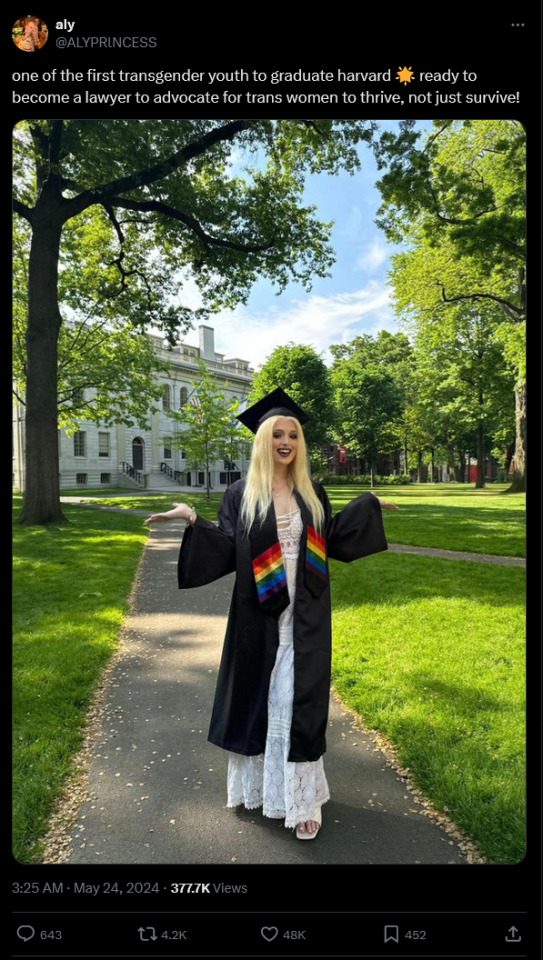
#lawyer#legal#law firm#attorneys#harvard#lgbtqia#lgbtq community#lgbt pride#queer#lgbtq#lesbian#nonbinary#yale university#gay girls#nonbinary lesbian#sapphic#trans woman#trans women are amazing#trans women are beautiful#trans women are valid#trans women positivity#trans joy#transblr#trans pride#trans people#trans positivity#transgender#trans posting
618 notes
·
View notes
Text

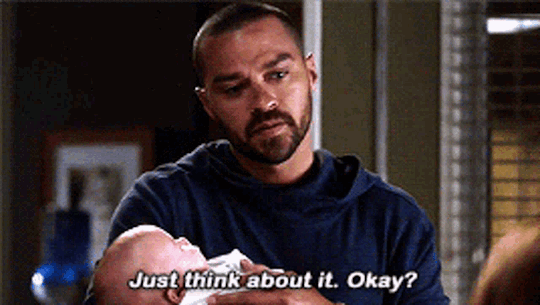
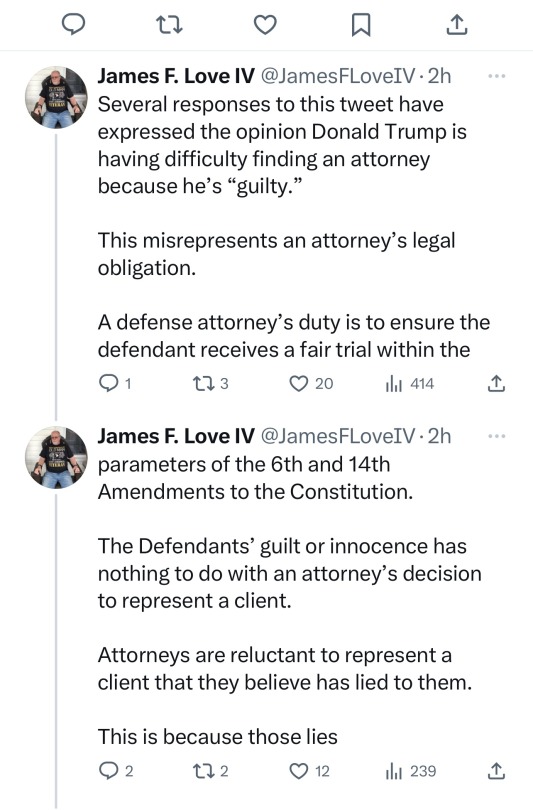

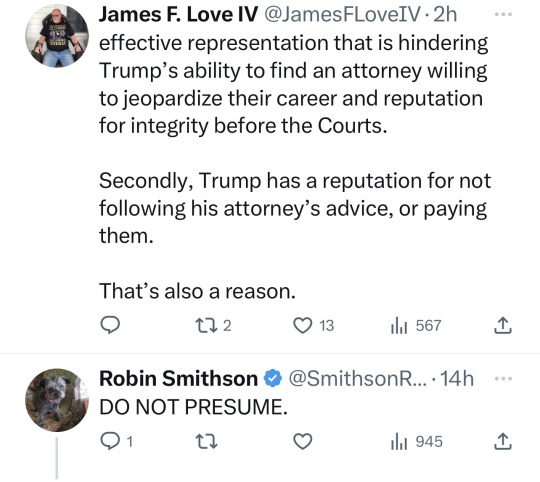
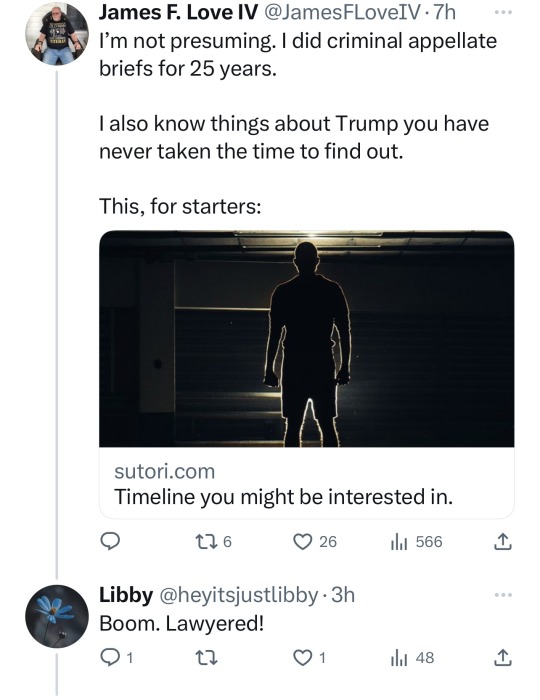
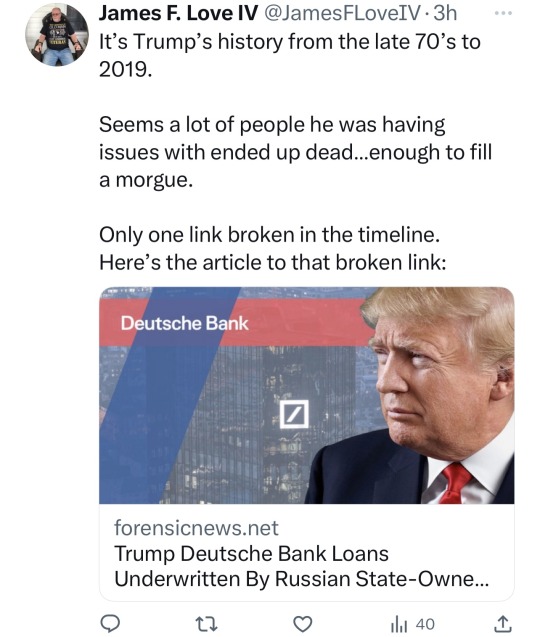
Dang. Idk if anyone has ever laid out Donald Trump’s entanglement with Russia sO clearly.
If you’ve had enough of watching the Trump clowns defending Trump & white supremacy, the Sutori link is definitely worth reading. It is a very enlightening, detailed and comprehensive timeline that puts Trump’s very very long history with Russian mobsters into sharp perspective.
👉🏿 https://www.sutori.com/story/timeline-you-might-be-interested-in--pTTyLH39r7FsRtF51JZi4BVt
👉🏿 https://forensicnews.net/trump-deutsche-bank-loans-underwritten-by-russian-state-owned-bank-whistleblower-told-fbi/
#politics#donald trump#republicans#trump indictment#espionage act#legal#lawyers#treason#traitors#mobbed up#russian mafia#russian mob#money laundering
3K notes
·
View notes
Text


It's 2024 now. I immediately set upon drawing up a new tshirt design for my threadless shop that is very legal to sell. It is extremely legal now. People can legally buy this from my threadless. Or, you could draw your own, they can't stop you anymore.
LINK
721 notes
·
View notes
Text
heyyy tumblr,
class of 2024 law student here. no offense but you know things are bad when i take it to tumblr. law school really does something to your psyche and i hate to say it but despite this whole movement on social media to be more transparent, i don't believe anyone will be completely honest about their experience when their words can be traced back to them. being believable as 100% genuine & honest while being anything less than to followers that cling to every syllable of yours does more damage than good imo.
ill start this page with some honesty that i would label as a 6/10 on the "how embarrassed would i be if someone from my post-grad job were to see this" scale i just made up.
my first semester i felt like the smartest version of myself i had ever been because i got 1 online award from a fake company (seriously what business does this "computer-assisted legal education" company have hosting awards for schools around the country & why are they receiving our grades to begin with) for having the highest grade in my class. mind you, this company/award is not at ALL affiliated with my school, its literally made up. but its something that is made PUBLIC (as in if you knew my name you could google me and this stupid award shows up), and so many schools still acknowledge it to, idk, create further divisions between students that i guess the whole system of making everyones grades 100% based on their finals and curved (not in a good way) doesn't do enough for?
now here i am, having finished my 6th semester & walked the commencement stage a few days ago ugly crying over a grade because i might have just lost my honors status. when in actuality .... ~ kim, there are people that are dying ~ why does any of this matter?? this is what 6 semesters of slowly having your confidence in your own intelligence chipped away at does to a person.
its not over yet though - bar prep starts last week :). actually it starts on may 20th officially, but no ones being honest about the fact that they really started studying the day after their finals ended, if not earlier.
so i've decided to document my experience for you all here. with bar prep & my foray into big law (you know this field was meant for babies because that's what we unsarcastically call a career at a top law firm) on the horizon, & 6 semesters of pure chaos behind me, i have a lot to say!
im not sure who this is going to reach because, again no offense tumblr, but i doubt this site has the reach it once did. maybe this will just end up being a time capsule for myself, which i would love. or maybe this will help 1 person cope, which i would love even more.
regardless, if you read this far, thank you & tttys. going to throw some random hashtags in now don't mind me.
#bar exam#law school#legal#attorney#grad school#california bar#ube#grad student#law student#student life#class of 2024#graduation#commencement#honors#lawyer#law firm#anxiety#student mental health#student#studying#study motivation#study blog#studyblr#studyblr community
322 notes
·
View notes
Text
KOSA Moves to the House
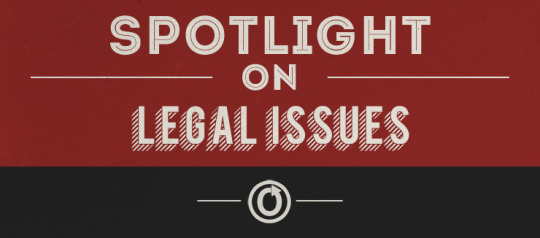
KOSA is still moving forward and OTW Legal explains how fans can add their voices and who to contact. Read more at https://otw-news.org/37dhnd5a
2K notes
·
View notes
Text

550 notes
·
View notes
Text
More Adventures With Very Bad Publishers
Enjoy.

For those who have complained that these posts were behind a paywall, that was not intentional. There's an automatic paywall that pops up after posts have been online for a few weeks. I have removed it. You can now read everything for free.
1K notes
·
View notes
Text
A historic legal agreement approved in federal district court yesterday afternoon commits the Environmental Protection Agency to a suite of proposed reforms to better protect endangered species from pesticides. The settlement, which covers more than 300 pesticide active ingredients, marks the culmination of the largest Endangered Species Act case ever filed against the EPA.
Under the agreement’s terms, the EPA will develop strategies to reduce the harm to endangered species from broad groups of pesticides, including herbicides and insecticides, while taking further steps to target meaningful, on-the-ground protections to endangered species most vulnerable to harm from pesticides.
Thanks @walking-on-a-scream for the submission!
#submission#endangered species#good news#hope#pesticides#herbicides#insecticides#environment#endangered species act#legal
487 notes
·
View notes
Text
Definitions and "categories" of crime vary by state/country, but answer based on whatever is closest.
–
We ask your questions so you don’t have to! Submit your questions to have them posted anonymously as polls.
#polls#incognito polls#anonymous#tumblr polls#tumblr users#questions#polls about ethics#submitted may 7#legal#court#legal processes
209 notes
·
View notes
Text
In unrelated news, the CEO of MGA Entertainment deleted his Twitter in 2020 after bullying a creator whose likeness they allegedly plagiarized for a toy
355 notes
·
View notes

